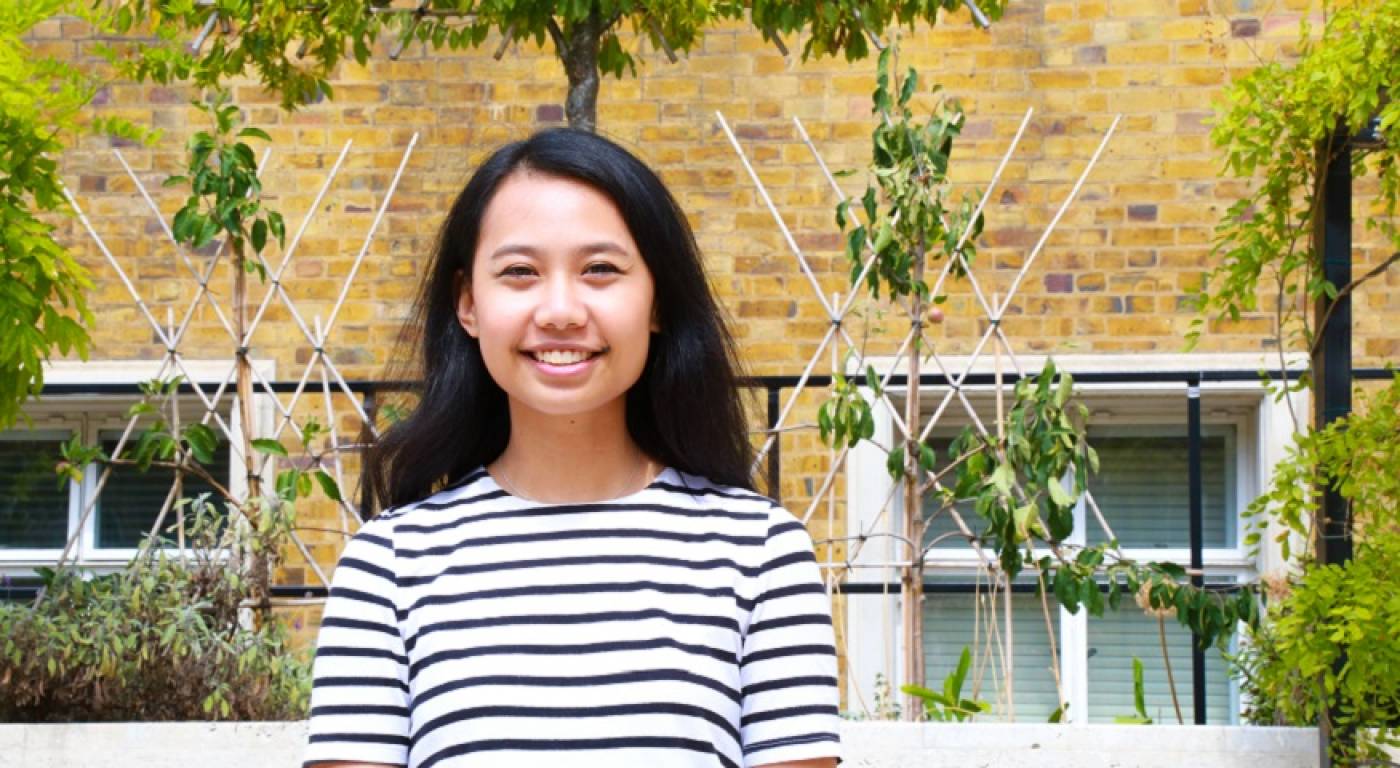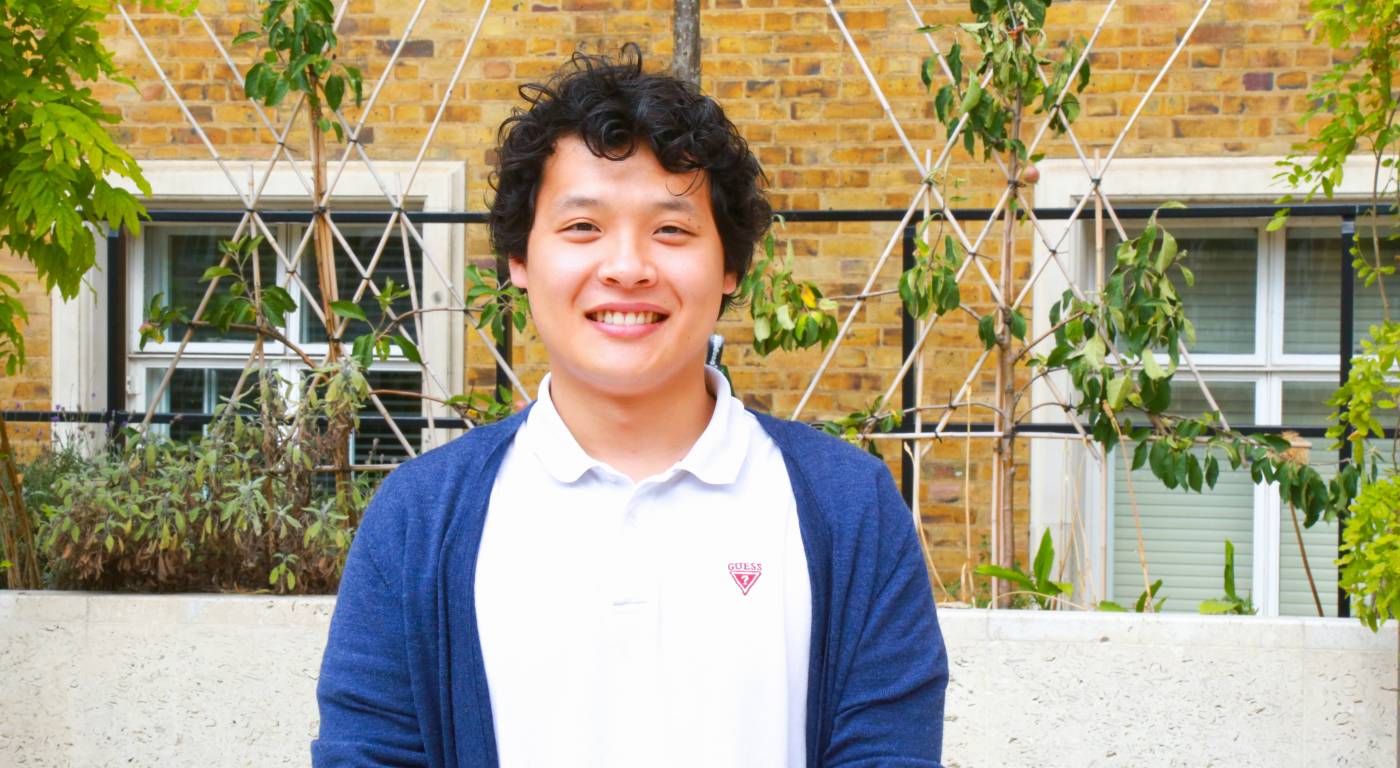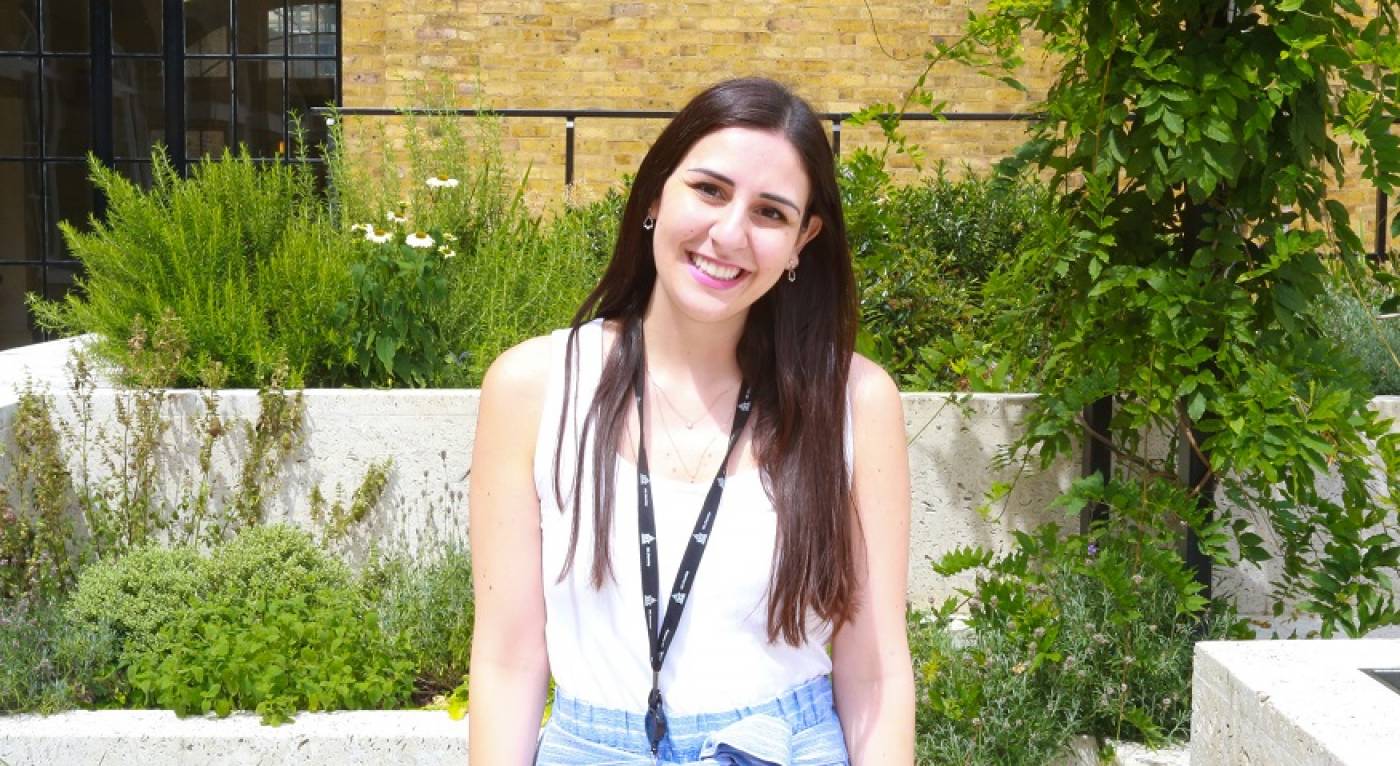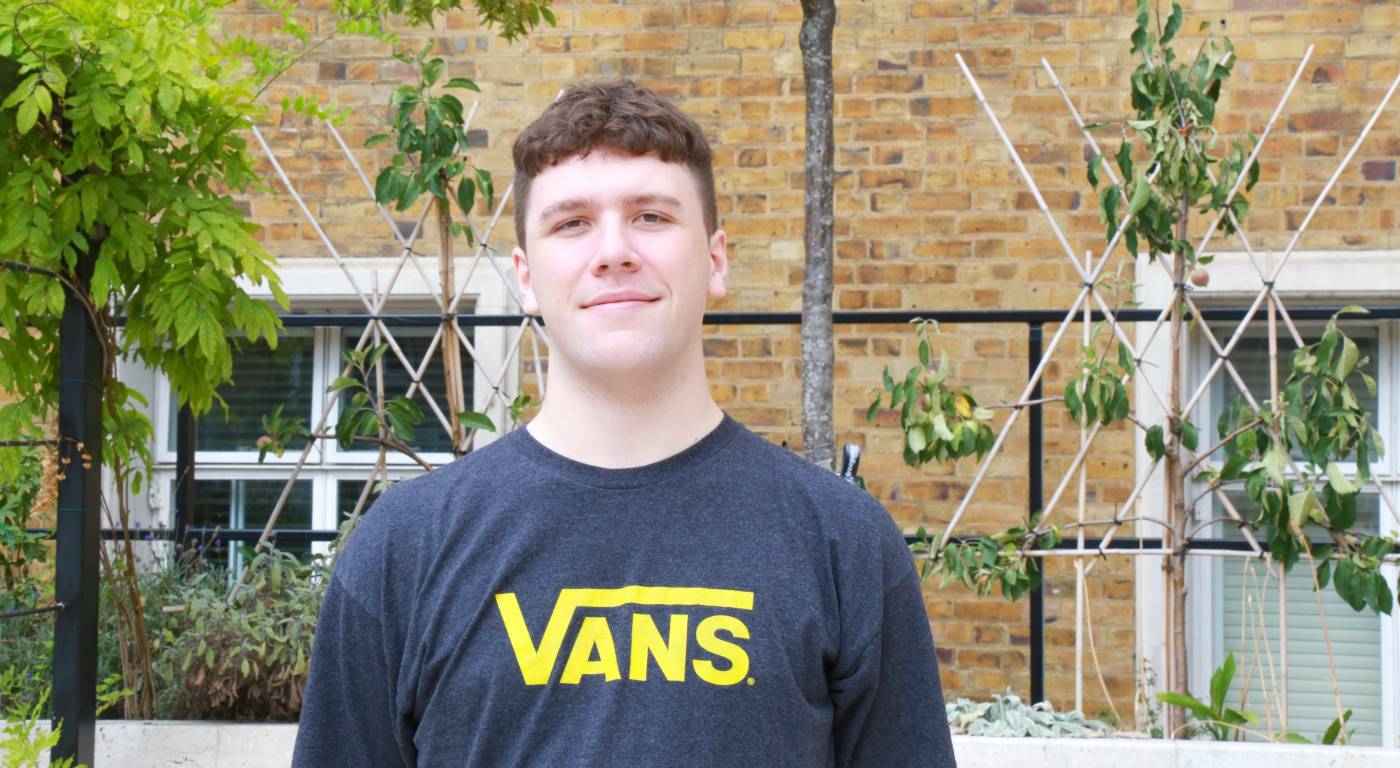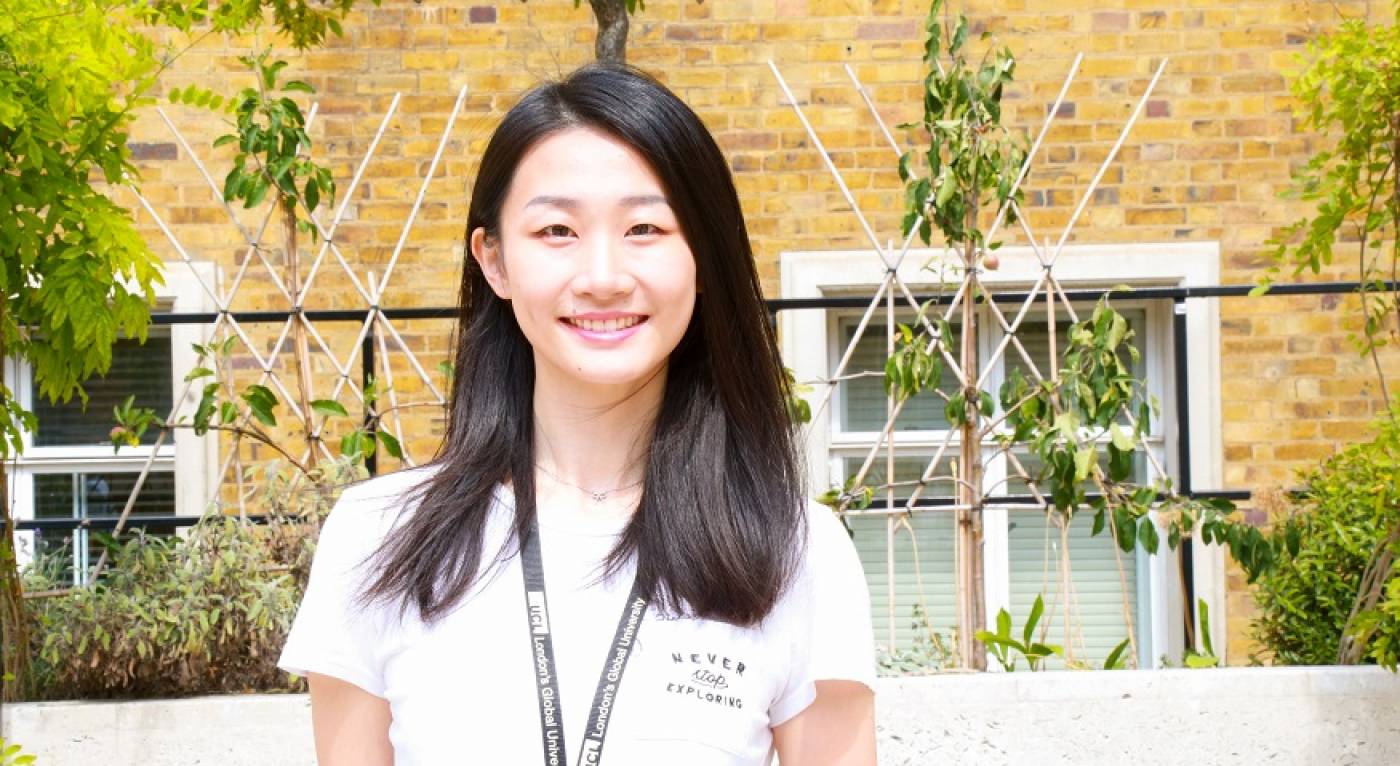Questions & Answers
Why Study at UCL Chemistry?
UCL is the largest and oldest college of the University of London, it is committed to academic excellence and is consistently ranked in the top group of three with Oxford and Cambridge among multi-faculty universities for research. We also have an impressive international reputation.
- Read more: Why Study at UCL Chemistry?
UCL is situated in the centre of London on a compact site among the leafy squares of Bloomsbury, close to the major libraries, museums, and learned institutions of the capital. The college offers an exciting social life on and off-campus with an enormous range of student societies, particularly strong in drama, music, fine art, and sport.
Why UCL Chemistry?
We are consistently regarded as one of the best departments in the UK. We believe we offer an excellent education with high standards of teaching in an exciting but friendly environment. We have a relatively small intake of undergraduates compared to the size of the academic staff - a very low student : academic ratio. You will mix throughout your time here with staff, postgraduate students and researchers.
We treat you as part of our community of chemists. After all, you are here to do exactly the same as all the PhD students, researchers and staff are here to do - to discover some new chemistry, every day!
Being on the main campus gives UCL chemistry its very central location. There is easy access to all the College facilities - the Bloomsbury Theatre and UCL Union are across the road. The Library is just a couple of minutes walk away.
The Chemistry Department has strong links with Physics, Biomedicine and the Royal Institution, to name but a few. If you are not studying pure chemistry, you will probably be taught in other departments early in your course.
The College itself is multi-faculty, and there are many exciting possibilities for working with people from other departments towards the conclusion of your degree.
Teaching and Learning
The learning environment at university can be significantly different to the one you experienced at school. You will be taught by a wider variety of staff, each a specialist in the field being taught. Lectures are supported by regular tutorials, workshops and of course laboratory classes.
- Read more: Teaching and Learning
But, of course we also expect further study from yourself, and to assist in the transition from school to university we provide a series of workshops on effective study methods in the first term.
Lectures
Most courses use lectures to deliver the majority of the material. These are 50 minutes long and depending on the course the class size can vary from your whole year group in core courses to as few as 10 in specialised courses in years 3 and 4. Most lectures take place in the chemistry department.
Laboratory Classes
Each core course is accompanied by a laboratory course, the aim of which is to develop your practical skills, to develop your investigative and analysis skills, and to provide a context for the lecture material.
Depending on the subject each lab class can be up to 3 afternoons (2-6pm) each week. But your time in the lab can vary. Organic practicals clearly have to be done in the lab, but analysis of physical labs can be undertaken outside the lab environment if you wish.
Practicals are an essential part of your degree and we take effort in providing meaningful and timely feedback on your performance, both in the lab - academic staff are always on hand along with other demonstrators - and in the marked lab scripts. Indeed many of the laboratories require us to mark the scripts with you, providing you with instant feedback and help.
Tutorials
It is a feature of UCL's Department of Chemistry, but not all chemistry departments, that our courses are strongly supported by a full programme of small group tutorials given by the academic staff. Each week you will see each of your Academic Tutors - covering organic, inorganic and physical chemistry - to discuss material arising from the course. In addition, all academic staff have office hours when they are available for consultation. Students are encouraged to talk to both the course lecturer and the Academic Tutor for their degree programme. We also hold larger problem solving classes (15-20 students) called workshops to allow you further time to develop your understanding of the material.
Typical Week (if there is such a thing!)
The number of contact hours on a chemistry degree is high.
- 8-15 lectures (chemistry and options) usually morning
- 3 tutorials (workshops)
- 2+ afternoons in laboratory Inorganic/Organic = two afternoons in lab Physical = one measuring, one analysing
- Private reading, note revision, library work, etc.
- Sport or other activities
- Other UCL opportunities volunteering, teaching, mentoring
Assessment
We want you to develop into deep learners - scientists who have a fundamental understanding of their subject. In order to do this we want you to have time to think about the subject. Therefore we not only examine at the end of each year, but give you the opportunity to develop your skills during the year through assessed coursework.
- Read more: Assessment
All examinations are held during the third teaching term, with the exception of the Introduction to Chemical Principles course in the first year.
First and second year courses have associated laboratory work and written assignments which contribute to the final mark.
The third and fourth years have separate experimental courses involving advanced methods and research projects which are assessed by your performance in the laboratory, an oral presentation, your project report, and an oral examination.
Each year, you take four course units leading to a total of 12 for the BSc and 16 for the MSci, except for MSci in Chemistry with a European Language which has a total of 14 course units. The research project undertaken by MSci students is assessed by a combination of a written report, an oral presentation, an oral examination and a supervisor's report.
Pastoral Care
In addition to an academic tutor you will be assigned a Personal Tutor, also a member of the academic staff, whom you will get to know well over the three or four years as an undergraduate.
- Read more: Pastoral Care
Your Personal Tutor will discuss your career development with you as well as help with any personal or more general academic problems.
In the first year you will also be assigned a mentor - an undergraduate from the second or third year. They are there to assist you with the transition to university study - and a great source of academic and non-academic help and advice (and probably gossip!).
Careers
A chemistry degree at UCL not only gives you an in-depth understanding of the chemical universe but also makes you a highly numerate and analytical thinker.
- Read more: Careers
About one-third of our graduates take higher degrees, either at UCL or at other universities. They usually study advanced areas of chemistry, but others have gone on to study for degrees in nanotechnology, chemical engineering, biochemistry, pharmacology, zoology and many other disciplines. Some of our students thereafter continue in chemistry, a few in academia, and many more in industry.
Our graduates have been highly successful in gaining graduate entry to medicine.
However, just because you've studied chemistry doesn't mean that you will be fiddling with test-tubes until the day you retire! Many enter chemical or chemical related industries in a wide variety of roles. Some have taken positions in the Pharmaceutical industry in both organic syntheses and quality control. Others work in product development in healthcare companies. The list is endless. But there are also chemical related fields such as chemical sales, medical research and radiology. Students graduating from UCL have moved on to a huge range of different careers seemingly far removed from chemistry; but the training you receive as chemists makes you ideal candidates for many different careers. Many of our alumni now work in the financial world (accountancy or in the City), in management positions (either with specific companies or as management consultants), and in information technology (programming or running corporate computer networks). Others have gone on to become lawyers and teachers.
Career options are below and further information is available from the Royal Society of Chemistry
Career examples: Industries relying directly on the technical training of Chemists Careers in science relying on the general scientific training of Chemists Careers related to the numeracy, analytical, and problem solving skills of chemistry graduates Pharmaceutical Forensic science Accountancy Agrochemical Patent law Sales Biotechnology Scientific journalism Management Perfumes and cosmetics Teaching Marketing Textiles and dyes Scientific civil service Information technology Paints Health and safety Investment Banking Petrochemicals Environmental protection Management consultancy Polymers Nuclear Fuels Actuarial/insurance Materials Medicine Law Semi-conductors Scientific publishing Personnel Photographic Biomaterials
Finance and Bursaries
UCL has its own central bursary scheme to support those in receipt of UK grants.
- Read more: Finance and Bursaries
The department also has various bursaries and scholarships valued from £500 to £2,000 for each year of study that are awarded annually to students requiring additional support and/or who show high academic promise. All applicants through UCAS for one of our BSc or MSci degrees will be considered for an appropriate award. Decisions on bursaries are made after your first term at UCL.
The most significant awards are:
Bader Bursaries
Through the generous sponsorship of Dr Alfred and Isabel Bader we offer four Bader Bursaries each worth up to £2000 per year of study. Dr Bader is the founder of the Aldrich Chemical Company and an enthusiastic supporter of chemical education. These bursaries are awarded to promising students from state schools and usually from families with no background in HE who wish to study for a degree in this Department. Student potential, rather than A-level grades, is the primary criterion for making these awards. You should get your school to nominate you for a Bader bursary if you think you qualify. Please contact Dr Dave Rowley.UCL Chemistry Entrance Scholarships
We offer five £500 awards to those with outstanding academic qualification and performance during the first term (the Introduction to Chemical Principles course). No formal application is required as all new entrants are automatically considered. The announcement of the awards is usually made in early February of a student's first year.Kathleen Lonsdale Bursary
This award of £250 per year of study is supported by the generosity of Barbara Wilson, and is given to a female student of outstanding potential for the duration of their undergraduate career.Ronald Gillespie Award for Inorganic Chemistry
Professor Ronald Gillespie has endowed an annual prize of £500 for outstanding scholastic effort of one our graduates who is going on to work for a Ph.D. in inorganic chemistry in the Department of Chemistry at UCL. Professor Gillespie graduated in the Department, and did his Ph.D. work with Sir Christopher Ingold. He was on the staff of the Department from 1946 until 1958, during which period he and Sir Ronald Nyholm produced the Gillespie-Nyholm valence shell electron pair repulsion (VSEPR) model of molecular structure. In 1958 he moved to McMaster University in Canada, where is now Emeritus Professor.
Other FAQS
- What is the male:female ratio in the department?
For the past academic year the approximate male : female ratios were as follows:
Undergraduates 52 : 48
Postgraduates 53 : 47
Academic Staff 80 : 20
- How many tutorials a week will I have?
In your first year you will have three a week, one in each of the core subjects, each lasting approximately 1 hour. In your second year, again you will have weekly tutorials in inorganic, organic and physical chemistry.
- What happens in a tutorial?
At the beginning of your 1st and 2nd years you will be assigned an academic tutor for each of your core courses in inorganic, organic and physical chemistry. Each week, as part of a small group, you will see these tutors to discuss material arising from these courses. You may be set a series of problems to attempt prior to the tutorial. This is your opportunity to get to grips with any material that you may be having difficulties with or simply discuss things in more depth than the timescale of the lectures has allowed.
- How many hours a week will I be in college?
This will vary depending on which options you choose but generally in the 1st and 2nd year a student can expect about 26 contact hours a week. Further private study will also be expected. 3rd and 4th year hours will depend greatly on course options.
- Does each year of study count towards the class of degree I graduate with?
Chemistry is a "vertical" subject - you need to know first year material to attempt second year material. Therefore each year is crucial - we therefore reward your efforts in each year, but bias the marks towards the later years where you are able to excel in your own chosen areas.
At the end of each year there are a minimum number of course units which must be passed to allow progression into the subsequent year.
For BSc students your numerical score over all the courses in each year count towards your degree classification with the three years being weighted 1:3:5. Similarly, for students graduating with the MSci degree your performance in each year will be weighted 1:3:5:5.
- If I'm stuck on a piece of work who do I see?
If you are completely baffled by a piece of coursework or any material that has been covered in the lectures it is best to discuss the problem with your academic tutor during your tutorial. If the course you are taking does not have tutorials then you should approach the person who set the piece of work. All academic staff have office hours during which they are available for consultation. Of course it goes without saying that you should always seek help well in advance of the deadline, lecturers do not take kindly to students asking for help the day the work has to be handed in!
- Can I take course options that aren't in chemistry?
Yes, in fact we encourage it! As long as you can fit them into your timetable.
- How to find an alumni mentor
All UCL students are invited to join an exclusive social network only for members of the UCL community. Registration is simple and you can use your LinkedIn account to sync your professional details with your UCL profile.
Once you have registered you can search the alumni directory for a potential mentor from our pool of experienced alumni. You can search by a number of criteria including location, industry, year of graduation and UCL department. You can contact a potential mentor directly and establish a mentoring relationship that works for you both. There is no limit on the number of alumni you can contact or the duration of a mentoring relationship
Make the most of your online community by connecting with experienced professionals all over the world and strengthening your personal network.
To register and connect with your UCL alumni community please go to uclalumnicommunity.org
 Close
Close


